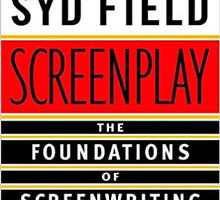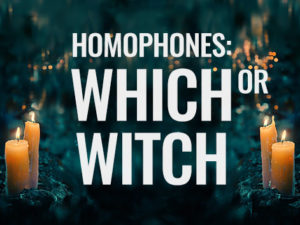
Good Grammar, Spelling, and Punctuation
Let’s get technical for a minute. What, exactly, is grammar? Here’s what Wikipedia says: In linguistics, grammar is the set of structural rules that govern the composition of sentences, phrases, and words in any given natural language. The term refers also to the study of such rules….Linguists do not normally use the term to refer to orthographical rules, although usage books and style…Read More

How to Critique Other Writers’ Work
As a writer, it helps to be thick-skinned. Once you put your work out there, people will judge, review, and criticize it. But critiques are more helpful when they are received long before publication. In fact, critiques are one of the best ways to improve your writing. Many writers who want critiques that will help…Read More

Screenplay by Syd Field
This post contains affiliate links that earn commissions from qualifying purchases. Studying the craft of writing from a variety of angles will benefit any writer. If you write short stories, you’ll learn something from studying a little poetry. If you write poetry, you can learn something useful from playwrights. And if you’re a novelist, you…Read More

Creative Writing Prompts Inspired by Historical Events
Today’s prompts include selections from the book 1200 Creative Writing Prompts. Enjoy! Nonfiction writers are obviously inspired by the real world, but fiction writers and poets also take inspiration from real people and events. Wars, scandals, scientific advances, and famous figures in history have all been represented in every form of writing. Works of fiction…Read More

Three Poetry Writing Exercises
If you’re going to exercise, it’s a good idea to warm up first. That way, you’ll get your body geared up to do the heavy lifting, the hard running, and the strenuous workout. Writing’s no different. Poetry writing exercises are ideal when you’re feeling uninspired or lazy, or maybe your poetry is getting stale and…Read More

Originality in Storytelling
Most storytellers strive to write fresh, original stories. They’re hoping to come up with an idea that’s never been done before. Is that even possible? Most stories are built with universal structures, or they use elements that can be found in the plethora of stories that already exists. That’s why readers can often predict the…Read More

Communicating with Poetry: The Search for Deeper Meaning
The search for deeper meaning in a poem implies that it might contain a hidden message. But poetry is not coded messaging; it’s artful communication. It’s more useful to ask what a poem communicates than to ask what it secretly means. Some poems are straightforward; there’s no interpretation to be made because they are clear…Read More

Homophones: Which Witch?
A reader left the following comment inquiring about the spelling of two sets of homophones: “I have trouble with witch/which (and even so, I am not sure I have those right) and weather/wheather [sic]. any good ideas on how to keep them straight???” I’ve already written a post addressing the difference between weather and whether….Read More

Curiosity and Creativity for Writers
Today’s post is an excerpt from my book, Ready, Set, Write: A Guide to Creative Writing, which takes you on a tour through the world of creative writing while offering writing ideas and inspiration. This is from chapter thirty-one, “Curiosity and Creativity.” Let’s find out how fostering curiosity can increase your creativity as a writer. Enjoy!…Read More

Making the Right Word Choices for Better Writing
Have you ever read a sentence and wondered what it was trying to say? Ever gotten hung up on a word that felt out of place because the meaning of the word didn’t fit the context? When was the last time you spotted a word that was unnecessarily repeated throughout a page, chapter, or book?…Read More



